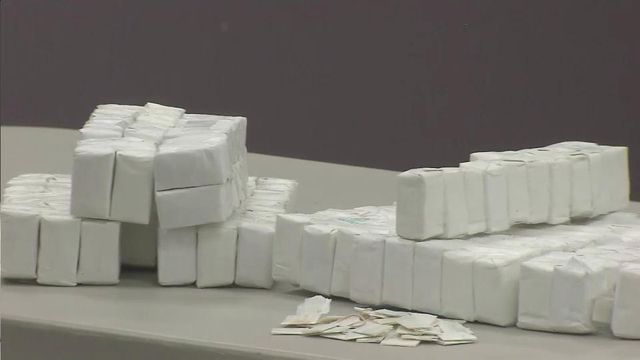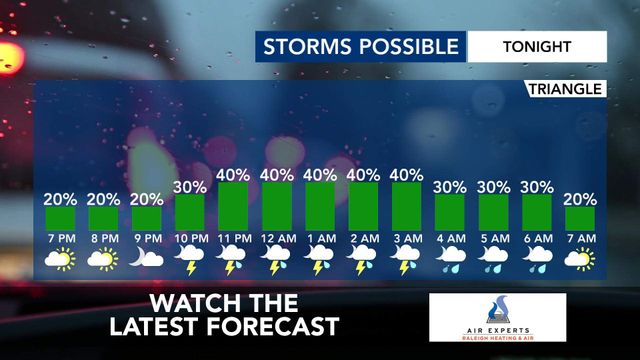Heroin use, trafficking a continued problem in Nash County
After authorities in Nash County seized nearly 350 bricks, or $250,000 of heroin, the sheriff says that is just a piece of the problem.
As of March 2016, Nash County had almost matched the number of heroin-related deaths in all of 2015. The Tar River Regional Task Force, the largest regional group in the state, has now been tasked with solving the growing narcotics problem - with heroin being the biggest concern.
Moments after Antonio Santos, 42, was arrested by the task force, he admitted he was high and had marijuana in his possession.
With a previous record, Santos was charged with two felonies and a misdemeanor.
Nash County Sheriff Keith Stone said Santos' case pales in comparison to what he has seen in the last six months.
"When we started making large seizures on the interstate, I recognized then that we had a serious problem," Stone said.
But the heroin problem is not just in Nash County, it is all over the state.
In 2014, Mecklenburg County had the highest number of heroin-related deaths at 179. Wake County had 109, and Durham County had 63.
Stone said one of the biggest problem areas is along Interstate 95, a frequent route for heroin couriers.
"If we can stop it before it gets to somewhere else, then we are saving lives somewhere else as well," said Capt. Allen Wilson.
One local veteran, who did not want to be identified, said law enforcement officers may have saved his life when he became an addict.
"You get introduced to it, and pretty much after the first or second time, game over. You're stuck on it," he said.
The man said he was addicted to heroin for three years, but he has been clean since Feb. 17.
"At first, I might have spent like $10 to $20 or $30, something like that throughout the day," he said. "Eventually, it turned into $100 to $200 at a time."
He said the culture of being an addict is warped. If someone has an overdose, addicts flock to that dealer in hopes of getting a taste of their strongest stuff.
The mentality leads to more overdoses and additional deaths.
"The heroin alone is bad enough, but then you are supplementing it with stuff that is more toxic than what you are dealing with," Stone said.
Stone said he and his team are working around the clock to stop the growing trend.
"If you're dealing heroin, you're committing murder," he said.
The HOPE Initiative, a program created in February, helped the veteran overcome his addiction. The program allows opiate users to show up and turn in their drugs with a promise of offering support with no questions asked and no charges.











